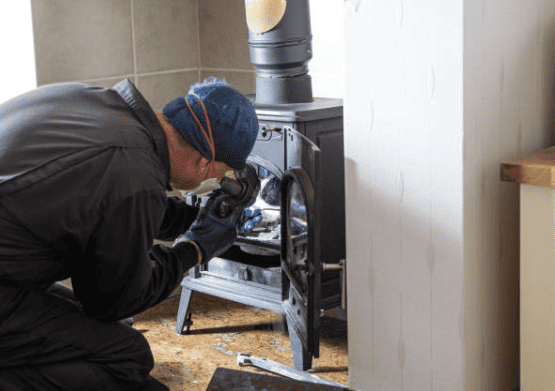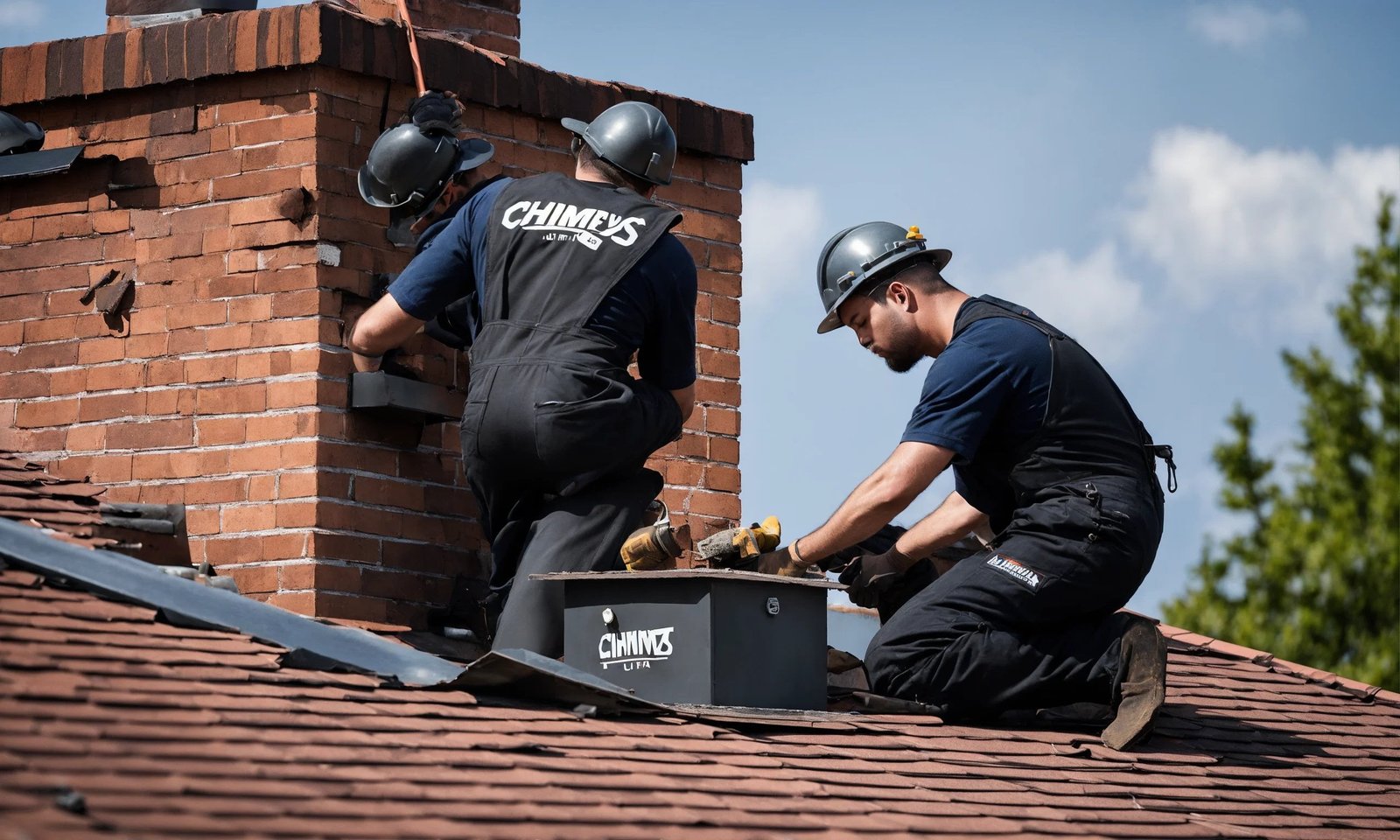When was the last time you had a pro check your chimney? If it’s been more than a year, it’s time to mark your calendar and schedule an appointment. Regular chimney inspections are vital to the safety and functionality of your home.
Whether you’ve just moved into a new home or have been living in your current one for years, it’s important to know what a chimney inspection entails and why it’s so important.
In this comprehensive guide, we’ll cover everything you need to know about chimney inspections.

1. What are a chimney inspections?
A chimney inspection is a thorough check of your chimney and fireplace that assesses whether the chimney is safe and functioning as it should.
During an inspection, a professional chimney sweep will examine the condition of the chimney lining, flue, and brickwork.
They will also check if there’s any blockage or issue that may be hazardous to the homeowner.
2. Types of chimney inspections
There are three different levels of chimney inspections, and each level is contingent on the number of distinct factors that require checking.
A level one inspection is the most basic and is recommended for chimneys that have had no major incidents.
A level two inspection is a more comprehensive inspection that must be performed if any changes are made to the chimney, such as a replacement of the liner.
A level three inspection is the most in-depth type of inspection, and it involves the removal of parts of the chimney to locate any structural problems.
3. Why are chimney inspections important?
Chimney inspections offer numerous advantages. Safety is one of the most crucial reasons to schedule regular inspections.
If there is a problem with your chimney that goes unnoticed, it can lead to serious structural damage, carbon monoxide leaks, or chimney fires.
Chimney inspections ensure that your chimney is in proper working order and any problems are addressed on time, trying to prevent any hazardous situations.
Chimney inspections also help keep your chimney clean, allowing it to function efficiently.
3.1. Safety Reasons
Every year, numerous house fires occur due to untended chimneys that lead to massive destruction of property and, in the worst cases, human life.
Regular chimney inspections can help you identify any potential problems before they worsen, such as creosote accumulation or firebox damage.
If left to accumulate, creosote has a high likelihood of catching fire, causing a dangerous chimney fire. As you well know, these fires can quickly spread to other areas in your house, leading to an inferno.
Therefore, conducting a visual inspection and cleaning your chimney regularly is vital.
3.2. Damages and Repairs
During a routine chimney inspection, a trained and experienced technician can identify any damages to your chimney such as missing mortar, cracked chimneys, or structural damage.
These types of damages, when left to accumulate, can severely affect the functionality of the chimney, leading to more severe issues such as carbon monoxide buildup.
Regular inspections can identify issues early enough for you to have fewer expenses and the prevention of more costly repairs.
3.3. Energy Efficiency
Besides keeping your house safe, regular chimney inspections help you save on energy costs. A damaged chimney, it may lead to the escape of heated air from your home.
This, in turn, forces your heating system to work even harder to maintain the desired temperature, which will reflect in your energy bills.
Regular maintenance and repair of damaged chimneys will ensure that you do not incur extra costs on heating.
3.4. Protection Against Carbon Monoxide Poisoning
Naturally, when using a wood-burning stove or fireplace, carbon monoxide gas may be produced.
Without proper ventilation, this odorless gas can accumulate in your home, leading to carbon monoxide poisoning.
This is why regular chimney inspections are essential in keeping the ventilation system efficient and safe.
3.5. Increased Longevity
Regular chimney inspections can extend the life of your chimney. Such inspections identify and fix problems, preventing the need for more profound structural repairs down the road.
This way, you get to enjoy your chimney longer and increase its lifespan.
4. When should I have my chimney inspected?
The National Fire Protection Association recommends an annual chimney inspection.
It’s ideal to schedule a chimney inspection in the fall before the cold winter months when chimneys are used more frequently.
If you haven’t had your chimney inspected in over a year, call us now and request a chimney inspection.
5. What to expect during a chimney inspections?
During a chimney inspection, a chimney sweep will perform a top-to-bottom evaluation of your chimney.
They will check the condition of the flue, liner and brickwork, and for any obstructions. They can also provide advice on maintenance and repairs as needed.
The sweep will also check for creosote buildup, which increases the risk of chimney fires.
Conclusion
It’s essential to have your chimney inspected regularly to avoid any potential hazards and ensure that it functions adequately.
Annual chimney inspections can help you save money in the long run by detecting any issues before they become major problems.
By scheduling routine chimney inspections, you can rest easy knowing your home’s heating system is functioning safely and efficiently.



